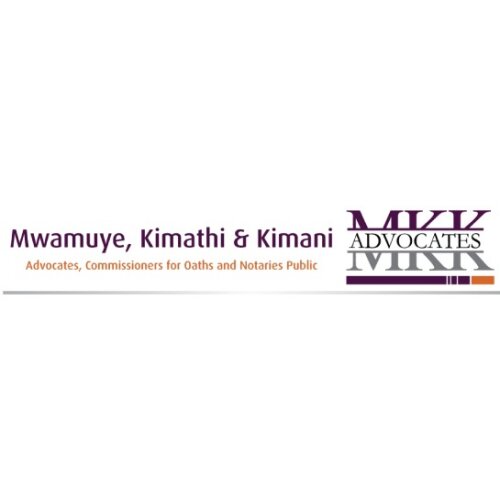Best Citizenship Lawyers in Kisumu
Share your needs with us, get contacted by law firms.
Free. Takes 2 min.
List of the best lawyers in Kisumu, Kenya
About Citizenship Law in Kisumu, Kenya
The Citizenship Law in Kisumu, following by extension the Citizenship Law in Kenya, is anchored in the Kenyan Constitution, 2010. It provides for three ways of acquiring Kenyan citizenship - namely by birth, registration and naturalization. Dual citizenship is now recognized under Kenyan law, offering Kenyans unlimited right to adopt and renounce other nationalities along with their Kenyan citizenship. Any matters concerning the Citizenship law are regulated by the Kenya Citizenship and Immigration Act of 2011, which is administered by the Department of Immigration Services (DIS).
Why You May Need a Lawyer
Given the complexities of citizenship law, hiring a lawyer is often beneficial. You may need a lawyer when you apply for Kenyan citizenship, either through naturalization or registration, if you are a foreign resident wishing to become a Kenyan citizen. A lawyer can guide you through the procedure, ensuring all paperwork is correctly filled out and any legal obstacles are addressed. Also, you may need legal advice if you wish to acquire dual citizenship, or in scenarios where your citizenship rights are being violated. If you're looking to renounce your Kenyan citizenship, legal counsel can guide you through the procedural requirements
Local Laws Overview
Under the Kenyan constitution, if you are born to a Kenyan parent, you automatically qualify for Kenyan citizenship. However, the law also provides for citizenship by registration for foreigners who fulfill certain stipulated conditions. The law also allows for citizenship by naturalization, subject to certain stringent conditions specified in the Citizenship and Immigration Act of 2011. Of particular importance is the fact that Kenya now recognizes dual citizenship, meaning Kenyans in the diaspora can now hold citizenship of their host countries while retaining their Kenyan citizenship.
Frequently Asked Questions
Can I hold dual citizenship?
Yes, the Kenyan Constitution of 2010 allows for dual citizenship. Therefore you can hold Kenyan citizenship alongside other countries' citizenship.
How can I become a Kenyan Citizen?
You can become a Kenyan Citizen by birth to Kenyan parents, through registration if you possess certain qualifications as stipulated by law or through naturalization.
What is the process of naturalization?
The process of naturalization is thorough and takes about a year. You will be required to have legally lived in Kenya for a substantial period and prove your intentions to stay. You'll have to fulfill certain conditions including good conduct, financial status among other requirements.
What happens if my rights as a Kenyan citizen are violated?
If your rights as a Kenyan citizen are violated, seeking legal advice and representation is advised to ensure justice is served.
Can I lose my Kenyan citizenship?
Yes, you can lose your citizenship if you renounce it willingly and this has to be done following the due process of the law with approval from the Attorney General's Office.
Additional Resources
The most reliable resource for citizenship law related matters is the Department of Immigration Services (DIS), a government body under the Ministry of Interior and Coordination of National Government. Local legal entities such as Kituo Cha Sheria, Federation of Women Lawyers (FIDA) or Lawyers Without Borders Kenya also provide free legal aid and advice on citizenship matters.
Next Steps
If you need legal assistance, consider finding a local lawyer specializing in Citizenship Law. It may also be beneficial to research and gather any required documents, such as birth certificates, ID, and proof of residence. Engage a reputable law firm that understands local citizenship law to address your concerns and guide you through the process. Always consult the Department of Immigration Services (DIS) for the most accurate and updated information.
Lawzana helps you find the best lawyers and law firms in Kisumu through a curated and pre-screened list of qualified legal professionals. Our platform offers rankings and detailed profiles of attorneys and law firms, allowing you to compare based on practice areas, including Citizenship, experience, and client feedback.
Each profile includes a description of the firm's areas of practice, client reviews, team members and partners, year of establishment, spoken languages, office locations, contact information, social media presence, and any published articles or resources. Most firms on our platform speak English and are experienced in both local and international legal matters.
Get a quote from top-rated law firms in Kisumu, Kenya — quickly, securely, and without unnecessary hassle.
Disclaimer:
The information provided on this page is for general informational purposes only and does not constitute legal advice. While we strive to ensure the accuracy and relevance of the content, legal information may change over time, and interpretations of the law can vary. You should always consult with a qualified legal professional for advice specific to your situation.
We disclaim all liability for actions taken or not taken based on the content of this page. If you believe any information is incorrect or outdated, please contact us, and we will review and update it where appropriate.










